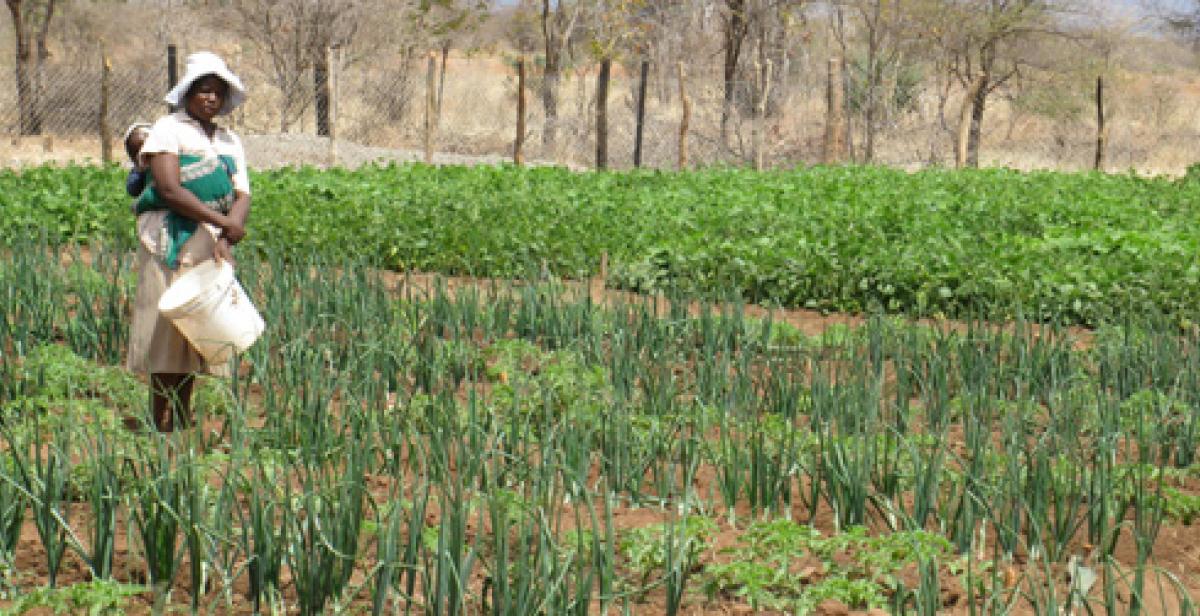Today is World Food Day when we will rightly be reminded of the blight of hunger and the appalling fact that today 1 billion people in the world will not have enough to eat.
In recent weeks, food security has been on the media’s agenda. Drought or heavy rains in many countries have caused poor harvests, which are causing food prices around the world to rise yet again. The poorest people in the world are most vulnerable to these food price hikes and there are fears that the number of hungry and malnourished will spiral.
We in the UK are not immune to these events. At the local supermarket I can’t help but notice that the prices of ‘basics’ such as rice, bread, fruit and vegetables are creeping up week by week. Supermarkets have warned that they may struggle to fill the shelves with fresh produce due to the poor harvest and that the quality of available produce will decrease. Some argue that it shouldn’t take a poor harvest to legitimise the appearance of nobly tomatoes. Food waste in the world remains too high for a world where so many people are hungry.
Throughout the year Progressio has been highlighting the fact that food security is impossible without water security.
For the communities that we work with, water is the biggest challenge and is essential for the livelihoods and well being of millions of small-scale food producers who need access to water in order to feed their families. Climate change is making this situation worse as weather extremes have a catastrophic impact on food production.
Practical steps
So what is Progressio doing about this? Progressio is not a humanitarian relief organisation that distributes food handouts to people who face food insecurity. Instead, Progressio’s partner organisations work alongside communities, investing in them and providing them with the skills, knowledge and initial inputs in order to build sustainable solutions to poverty.
Three weeks ago I was in Zimbabwe visiting communities that Progressio partner organisation Environment Africa works alongside. Environment Africa works with communities to utilise and sustainably manage the natural resources that are within their grasp.
By teaching women and men to rehabilitate broken boreholes and to build and nurture nutrition gardens and then giving them the first seeds and, individuals are being empowered to grow their own food and provide for their families.
By teaching families bee-keeping and supplying the first bees and hives, and by providing the widows within a community with livestock and the necessary skills to rear them, individuals are able to make a living with which to send their children to school and improve their homesteads.
From mangoes to peaches
I was particularly struck by the story of Mrs Trasia Kambuto. Mrs Kambuto is a widow with three children who had been excluded by the rest of her community. She was struggling to provide water, food and shelter for her family. However, with advice from Cliff Maunze (Progressio's Development Worker) she and her children dug a well 9 meters deep, making the bricks to line the well themselves.
Her enthusiasm in digging and planting a small but thriving garden, learning advanced bee keeping and using any income generated to improve her homestead has been remarkable by all accounts and today she is providing enough nutritious food for her children as well as being able to send them to school. In addition, she, like many of the people that I met, has ambitious plans of what to do next when she has the means.
All of this is not without its challenges. Water scarcity is a chronic problem made worse by the unpredictability of rainfall. Communities must adapt to climate change by learning water retention and conservation farming techniques. It took just three nights of unprecedented frost in August to ruin the majority of the fruit trees that had been planted. But community gardeners are determined to try new things and grow more resilient fruits. They are, for example, already planting peach instead of mango trees.
Whilst World Food Day is of course a time to remember that hunger is a reality for too many people in the world today, I see it as a time to celebrate what can and is being done to help communities to help themselves in providing food for the long-term.
What I saw in many communities in Lupane, Wedza and Guruve (the three districts that I visited in Zimbabwe) was the epitome of ‘people powered development’. Each time World Food Day appears on our calendars we should be able to celebrate more places like these.
At a community garden named Amandlethu (meaning 'our power'), Menyezwa ward, Lupane. Woman watering the crops with water from the bore hole. Credit: Lis Martin/ Progressio



